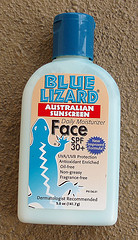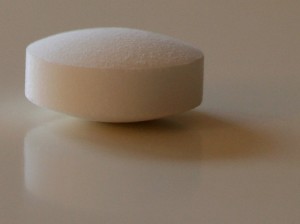Posted on 21 June 2011. Tags: broad spectrum, drug evaluation, fda, food and drug, food and drug administration, harmful rays, labels, skin cancer, sunburn, uva and uvb
 The United States Food and Drug Administration announced on Tuesday that they will require new sunscreen labelling in order to identify the products that are best for decreasing the risk of skin cancer.
The United States Food and Drug Administration announced on Tuesday that they will require new sunscreen labelling in order to identify the products that are best for decreasing the risk of skin cancer.
Based on the new rules, sunscreens that protect its users from UVA and UVB rays will be classified under “Broad Spectrum” sunscreens. FDA officials explained that both UVA and UVB rays cause skin damage; however, UVB rays are the main cause of sunburn.
Manufacturers of sunscreens will also be required to indicate sun protection factor (SPF). Those with less than SPF 15 could not claim that they help thwart sunburn, cancer, and premature skin aging.
The director of the Center for Drug Evaluation of the U.S. FDA, Dr. Janet Woodcock, said that sunscreens that meet their standards can now advertise their product as a tool that can help reduce the risk of skin cancer and early skin aging when used with other sun protection methods. The new labels, however, may not be seen until next summer, she added.
On the other hand, sunscreens with SPF of less than 14 and are not Broad Spectrum must indicate in their labelling that their product is not proven to decrease risks of skin cancer and sunburn. Woodcock also said that the said labels will be added on the drug fact box. She also said that sunscreens can no longer be referred to as “sunblocks” to avoid the impression that they offer complete protection from the harmful rays of the sun.
Posted in Health
Posted on 24 May 2011. Tags: bristol myers, dr edward, drug evaluation, hiv researchers, hiv treatments, johnson johnson, pharmaceutical products, replication, sustiva, tmc278
 A new treatment for HIV has been approved by the US Food and Drug Administration on Friday. The medication is used with other antiretroviral drugs, which blocks the replication of the virus that causes the disease.
A new treatment for HIV has been approved by the US Food and Drug Administration on Friday. The medication is used with other antiretroviral drugs, which blocks the replication of the virus that causes the disease.
TMC278 or rilpivirine is a pill developed by Johnson & Johnson and will be given mainly for patients who have never started treatment for HIV, the FDA said in a report released on Friday. The American pharmaceutical company will sell it in the market under the brand name Edurant. It will be consumed once a day with meals.
According to Dr. Edward Cox, Office of Antomicrobial Products director in the Center for Drug Evaluation and Research in FDA, patients respond variously on the given HIV treatments; thus, the approval of Edurant provides an alternative option for patients who will start its therapy.
Two clinical trials were performed before the new medication was approved. The trials were carried out to 1,368 adults who had not yet received any treatment against HIV. Researchers randomly assigned patients with certain medications, which include rilpivirine, efavirenz and other pharmaceutical products.
In the trials, about 83% of the patients who received the new treatment suppressed the replication of the HIV virus at untraceable levels. Also, the same occurred to about 80% of the patients who have received efavirenz.
The results of the trials showed that rilpivirine works as well as efavirenz, also called as Sustiva by the Bristol-Myers Squibb. Most of the side effects that patients experienced while they took Edurant included headache, rashes, insomnia and depression.
The agency warned that rilpivirine does not cure infections with HIV. It advised that patients must have continuous therapy with the new pill to manage the condition and reduce the risk of spreading the illness.
Posted in Health
 The United States Food and Drug Administration announced on Tuesday that they will require new sunscreen labelling in order to identify the products that are best for decreasing the risk of skin cancer.
The United States Food and Drug Administration announced on Tuesday that they will require new sunscreen labelling in order to identify the products that are best for decreasing the risk of skin cancer.
 A new treatment for HIV has been approved by the US Food and Drug Administration on Friday. The medication is used with other antiretroviral drugs, which blocks the replication of the virus that causes the disease.
A new treatment for HIV has been approved by the US Food and Drug Administration on Friday. The medication is used with other antiretroviral drugs, which blocks the replication of the virus that causes the disease.